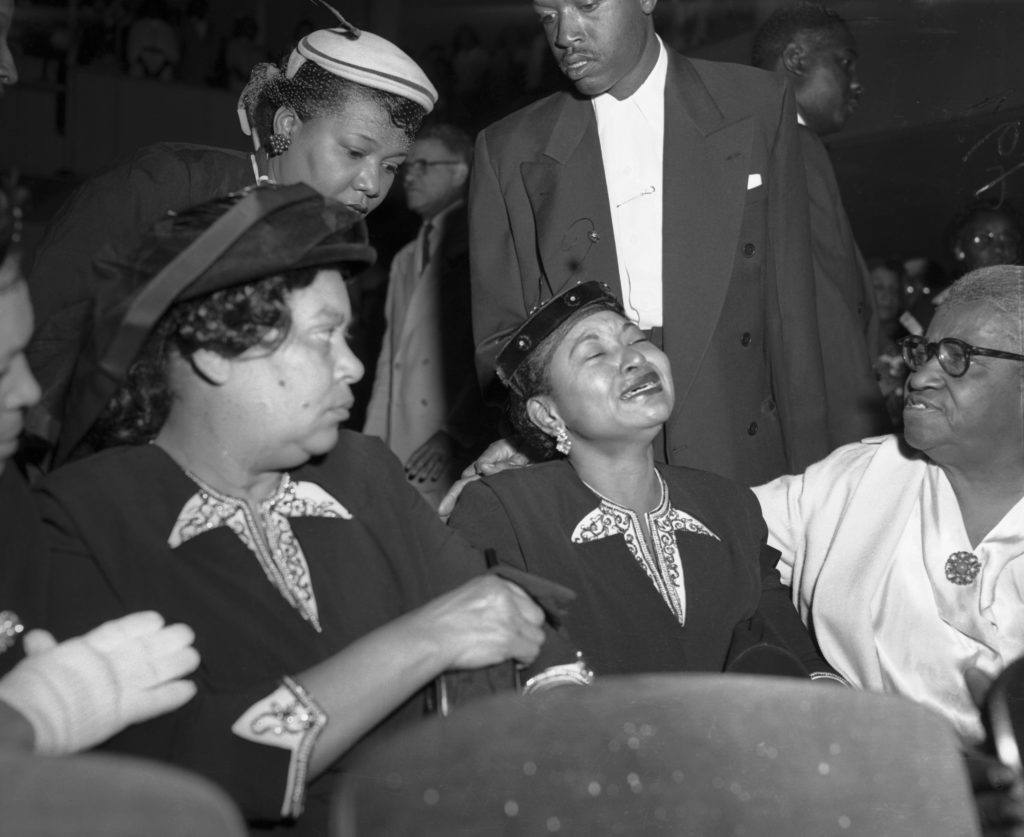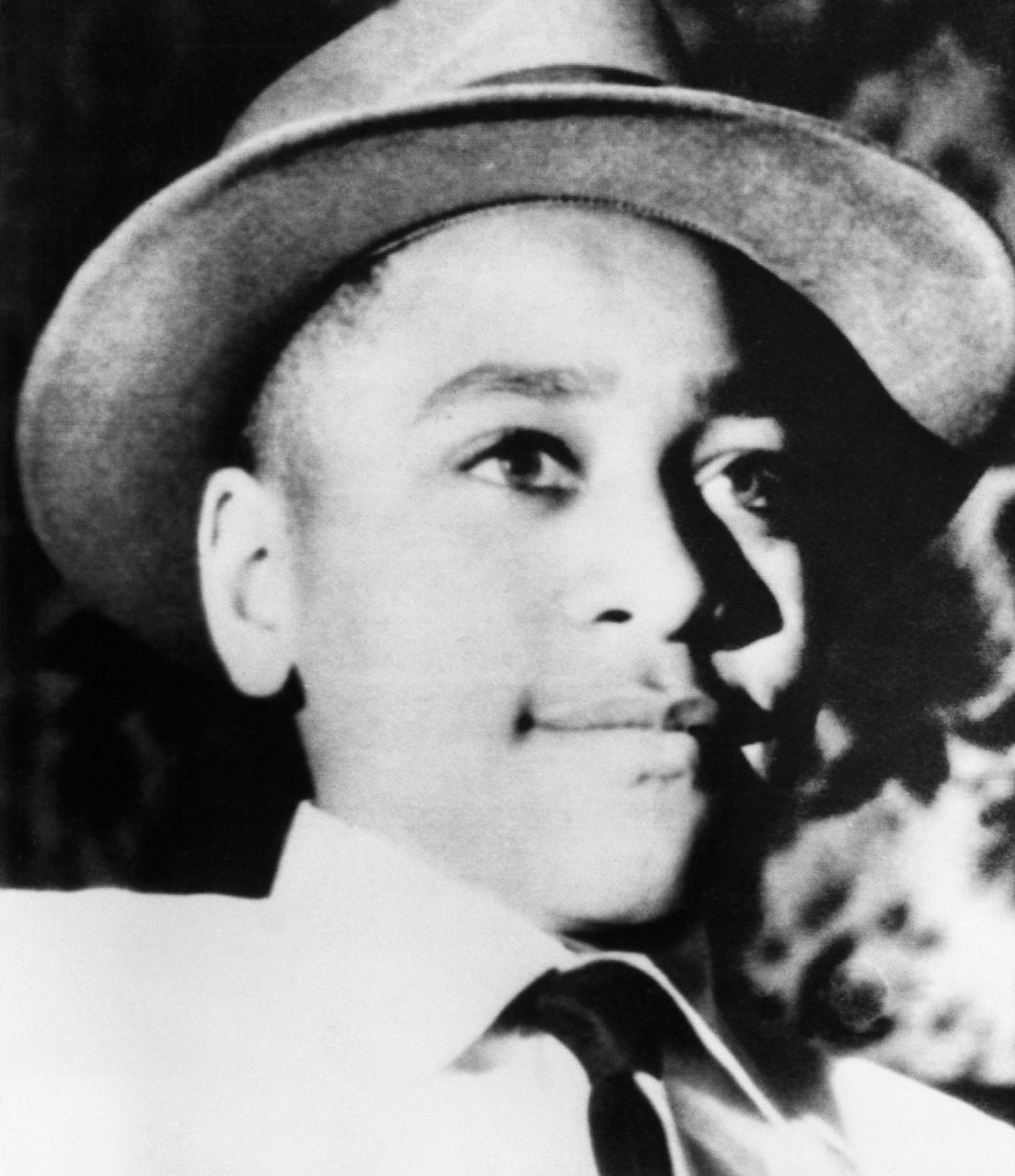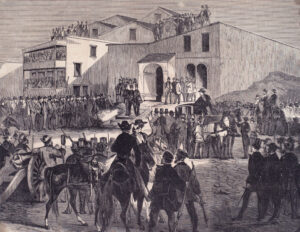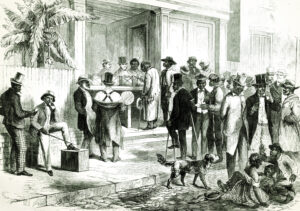It was meant to be a vacation to visit his relatives in Mississippi, yet this family vacation quickly turned sinister when 14-year-old Emmett Till, alongside friends and cousins, sought to buy bubble gum from Bryant’s Grocery & Meat Market in 1955.
Till’s savage murder became a turning point in the civil rights movement, as did the outcome of the killers’ trial. The reverberations of this act of racist cruelty are still felt strongly today.
Emmett Till’s Murder
A Chicago native, Till supposedly broke the strike racial mores of the Jim Crow South and purportedly whistled at and flirted with Carolyn Bryant, a white woman who, along with her husband, Roy, owned the market.
Though the exact details of the encounter have never surfaced, on Aug. 28, four days after the grocery store incident, Roy Bryant and his half-brother J.W. Milam, abducted the teen under the cover of darkness from the home of Till’s great-uncle Moses Wright.
The two men proceeded to brutally beat the teen, and, according to the PBS series “American Experience,” took him to the edge of the Tallahatchie River before shooting him in the head. They then fastened barbed wire and a large metal fan used for ginning cotton around his neck and pushed his body into the river.
Till’s heavily mutilated body was not discovered until days later, with Wright only able to identify Till by his signet ring, which had belonged to Emmett’s father, Louis Till.
Despite Bryant and Milam being immediately arrested for the crime, they perversely became something of celebrities in the South. When the two could not afford attorneys, five local lawyers volunteered their services to represent the men pro bono, and reporters often played up the “good looks” and “tall statures” of the suspects.
Carolyn Bryant’s False Allegations
Carolyn Bryant testified — without the all-white, all-male jury present — that Emmett had grabbed her hand and, when she pulled away, followed her behind the counter, clasped her waist and, using vulgar language, told her that he had been with white women before.
However, days after the arrest Carolyn told her husband’s lawyer that Till had insulted her but made no comment about physical contact,” Timothy B. Tyson, a Duke University professor and author of “The Blood of Emmett Till,” told The New York Times.
Five decades later, she told the FBI that he had touched her hand. Nearly a decade after that, Carolyn told Tyson that her long-ago allegations of Till grabbing her and being menacing and sexually crude toward her were “not true.”
Regardless of Caroyln’s inconsistencies, the men accused of Till’s murder were acquitted. The following year they admitted, somewhat gleefully, in Look magazine to the killing. Because of double jeopardy, they could not be retried.

Till and the Civil Rights Movement
Till’s death had a galvanizing effect on Black America and brought nationwide attention to the racial violence and injustice prevalent in the Jim Crow South.
His mother’s insistence on having an open coffin at his funeral to show the brutality of white racism and to this day remains a haunting reminder of the barbarism of hate.
“In order to come to grips with this tragedy, she saw Emmett as being crucified on the cross of racial injustice,” said Lonnie Bunch, founding director of the National Museum of African American History and Culture. “And she felt that in order for his life not to be in vain, that she needed to use that moment to illuminate all of the dark corners of America and help push America toward what we now call the civil rights movement.”
The Emmett Till Case today
In 2022, Till’s relatives discovered an August 1955 warrant for Carolyn Bryant’s death that had never been served. A note on the back of the warrant said that she hadn’t been served because she was no longer in that Mississippi county. Police at the time also told reporters that they didn’t want to “bother” a mother of two by arresting her.
Later, in July 2022, reporters tracked down Carolyn Bryant, now Carolyn Bryant Donham, 88. She was living in a Kentucky and, when confronted, refused to comment on Till’s death or the unserved warrant.





